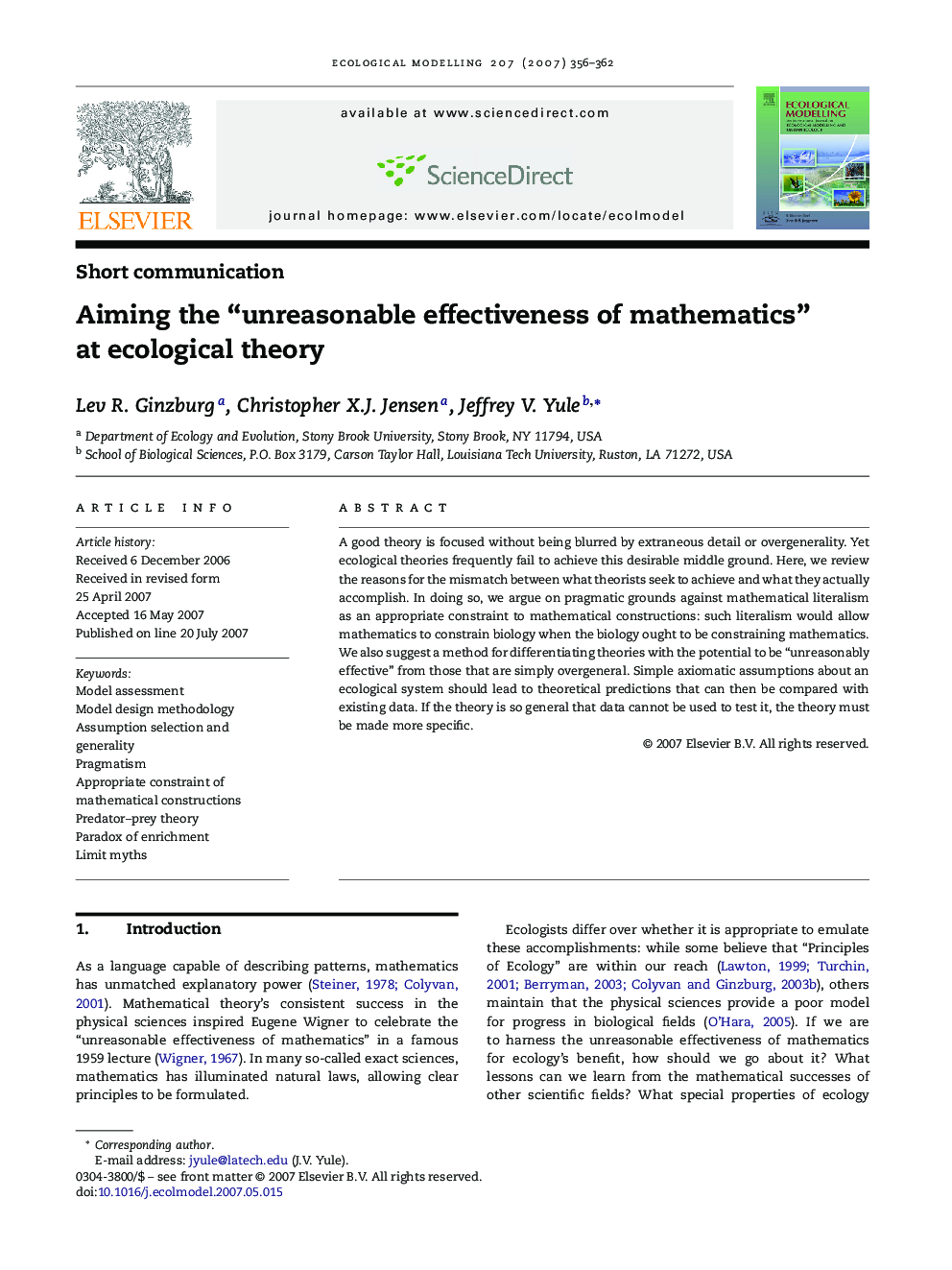| Article ID | Journal | Published Year | Pages | File Type |
|---|---|---|---|---|
| 4378477 | Ecological Modelling | 2007 | 7 Pages |
A good theory is focused without being blurred by extraneous detail or overgenerality. Yet ecological theories frequently fail to achieve this desirable middle ground. Here, we review the reasons for the mismatch between what theorists seek to achieve and what they actually accomplish. In doing so, we argue on pragmatic grounds against mathematical literalism as an appropriate constraint to mathematical constructions: such literalism would allow mathematics to constrain biology when the biology ought to be constraining mathematics. We also suggest a method for differentiating theories with the potential to be “unreasonably effective” from those that are simply overgeneral. Simple axiomatic assumptions about an ecological system should lead to theoretical predictions that can then be compared with existing data. If the theory is so general that data cannot be used to test it, the theory must be made more specific.
